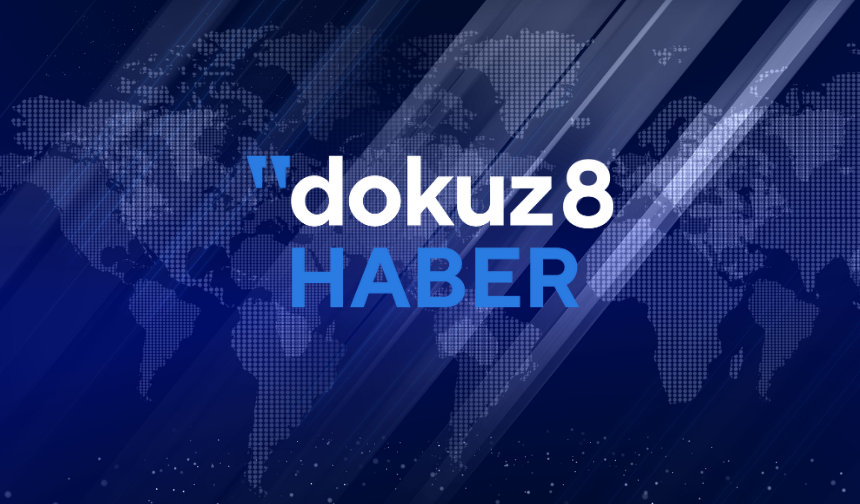Data localization topic has been brought up on Turkey's agenda multiple times since the beginning of the year, and in April government ally Nationalist Movement Party had already proposed users to be registered on social media with their ID-numbers. AKP chair & President Erdoğan on July 1 made a speech during which he said that social media platforms must be regulated.
#dokuz8/Gürkan Özturan
Governing Justice & Development Party held an extended local chairs meeting under chairing of AKP chair & President Erdoğan. During the meeting President Erdoğan evaluated the party's performance in the first half of 2020. During the meeting data localization and social media regulations plans have also come up.
"THESE PLATFORMS ARE NOT FIT FOR OUR NATION"
During the meeting, Erdoğan brought up the topic of new regulations for digital platforms operating in Turkey. In his speech Erdoğan said "these social media platforms that have become the center of lies and insults, where assault on personal rights is epitome of everything must be regulated. Do you see what it means that we are against social platforms such as Youtube, Twitter, Netflix? Because we want to eradicate this immorality. They have no morals. We do not want to live or see developments that are not fit for this nation. These platforms are not fit for this nation. We want to bring this up in the parliament and have control over these social media platforms." Erdoğan's complaint regarding the contents on social media and video streaming platforms are already heavily being targeted according to already-draconian online publications regulations bill, Law numbered 5651. Turkey files the highest number of legal demands for content removal from social media platforms and recently Netflix had to remove one episode of a series for Turkish viewers.
Turkish Radio & TV Higher Council issues directive for @Netflix to unpublish an episode of "Designated Survivor" for viewers in Turkey.
The episode previously had caused criticism by Turkish government for depicting the 2016 coup attempt in Turkey. pic.twitter.com/f76y7UYvTk — dokuz8NEWS (@dokuz8news) May 1, 2020
"WE WILL IGNORE PLATFORMS THAT IGNORE OUR LAWS"
President Erdoğan continued his speech, "we are dedicated to do anything to ensure legal and financial response from these internet and social media platforms operating in our country. When the legal regulation is prepared, we will implement everything including access blocking, judicial and financial sanctions, all kinds of methods. Turkey is not a 'banana republic'. We will ignore the platforms that ignore legal and administrative institutions of this country. Rule of law is the unalienable basis of democracy. If we do not do what is necessary in this field, then we will be acting against democracy and rule of law." According to the latest data localization draft bill, the Information and Communication Technologies Authority BTK will be given authority to completely block access to applications and services such as Whatsapp, Netflix, Telegram when seen necessary. As these platforms will be required to keep their servers inside Turkey, they might be inaccessible even through VPN services.
GOOGLE HAD AGREED ALREADY IN 2019
Previously in the autumn of 2019, relationship between Google and Turkey had been stranded over financial fines of 1.5 million TL daily for violating competition rules, against the tech-giant. In December 2019 Google had announced that there would no longer be issued licenses for android devices in Turkey, not only hurting the individual users and millions of smart devices to be sold in Turkey but also the banking and financial services that heavily rely on android operating system support. Following talks between the two sides Google had eventually agreed to install server bases in Turkey to store and process data that originates in Turkey. On December 17, 2019 Habertürk had announced that initially in 8 different locations Google servers would be established in Turkey by Turk Telekom. According to the news article by Necdet Çalışkan, by the end of 2020 Google would already have 50% server capacity to store and process data originating in Turkey, through establishment of server centers in 8 locations across the country in the first quarter of 2020. The news article continues to state that Facebook and its other services such as messenger, Instagram and Whatsapp, had already started using Turk Telekom based centers to move its servers to offer higher quality service to the users, and the server-use in terms of storage and process of data originating in Turkey for Facebook was 60% done locally.
10 YEARS IN PREPARATION
AKP has been calling on all global digital enterprises to open local offices in Turkey and pay taxes for the last 10 years however these companies have not been answering these calls positively. According to the draft bill, these companies will have to open local offices in the 30 days following the implementation of the legislation, if they fail in compliance their bandwidth would be narrowed by 50% initially and another 30 days would be given to the company. If the company again fails, it would be reported for blocking access to the necessary authorities.
DATA LOCALIZATION
Global digital companies that open local offices in Turkey, will also be required to localize all data that originates in Turkey be it in the form social media posts or e-mails, phone numbers etc. Previously companies would reject national governments' calls to share private information unless there was a specific crime that is recognized globally. According to the draft bill, social media companies that have an office in Turkey will have to open servers to necessary authorities upon demand and share all private information when required. If they fail to comply with this requirement, there would be monetary fines between 1 million to 5 million TL a day. Furthermore if the companies fail to remove content upon demand in 72 hours they would again have to pay a fine between 100.000 TL and 1 million TL.
PRESENTED AS A SAFETY MEASURE
Data localization plans have been presented as a digital safety measure by the governing alliance, claiming that this would resolve the never-ending cyber attacks targeting Turkey's banking and financial mechanisms as well as create a "more secure" online climate for individual users, freed from the vaguely described "harmful content". Istanbul Metropolitan Municipal Councillor from opposition IYI Party, Dr. Taylan Yıldız who comes from a technology background, stated in a webinar organized by EDAM that this legislation would not be bringing the level of security that is being promoted with the draft bill.
HATE SPEECH ONLINE
Pro-government journalist Abdulkadir Selvi brought the President's speech up in his column that this latest initiative would be an upgrade of earlier regulations. Selvi wrote, "social media platforms will have to open local offices in Turkey. Thus they will have to pay taxes here. Social media accounts will have to be opened through real identities and this will prevent fake profiles spreading around. Those who share content that constitutes crime will have their personal information ready at these databases and this data will be available if judiciary demands from the social media platforms who has to supply this information swiftly. Hate speech will not be permitted online."
ERDOĞAN DELETED HIS TWEET
AKP chair & President Erdoğan's speech was also reflected in a tweet later, when he announced the same measures. However this tweet that promises to initiate legal and financial measures against social media platforms, was later deleted. Presidential Communications Director Fahrettin Altun made a statement regarding President Erdoğan's statements, "our President's statement is being twisted deliberately to make him look like he supports banning social media, by separating the speech from its context".
WHAT DOES THE PROPOSAL BRING?
While the data localization bill is promoted by the governing alliance through references to grow local digital economy, boost support for national & authentic tech investors, offer a much safer and more secure social media experience for users in Turkey, it in fact bears a great potential for harm in various aspects. Primarily, the bill is supposed to enforce users to register for social media accounts with a copy of their personal ID numbers which would make the right to anonymity online in Turkey completely obsolete. A secondary aspect of this enforcement would be to put a great level of pressure on personal free expression and political commentary & statements, the repercussions of which would have devastating effects if the society bows to this pressure. Furthermore, according to the draft bill the social media platforms will have to change their policies regarding respect for the right to privacy, when the judicial authorities deem an account engaging in criminal activity, which is a liberally used method in the case of Turkey.
IMPACT ON THE ECONOMY
While the draft bill is claimed to bring a boost to Turkey's economy by forcing tech giants of the world to heavily invest in establishment of server bases in Turkey, local tech-related financial business people's comments tell otherwise. Some commentators draw attention to the potential impact of "digital-protectionism" measures that the draft bill might lead to, while also bringing up the criticism of local expertise being unable to meet the demands of the local digital entrepreneurial markets. Some banks have already announced that they have stopped sending monthly reports to their customers via e-mail, as this requires their banking details to travel outside of the country. These banks have announced that they will notify the users through telephone lines, which in fact also rely on international telecom companies and the satellite communications. If the bill is approved and comes into full effect, not only will all banking transactions, financial operations and digital enterprise activities will have to rely on national servers, but also depending on how it is implemented, there might be extra measures regarding the state's respect to right to property in terms of blocking financial transactions digitally when someone is declared a criminal.
TECHNOLOGICAL EXPERIENCE AND BRAIN-DRAIN
A final aspect to take into consideration regarding the impact of this draft bill would be the stopping of global experience-sharing businesses that allow small digital enterprises to flourish in Turkey. If passed and implemented this bill would result in certain digital services to have either local equivalents in Turkey or local demand to completely disappear regarding those services and fall behind in the global competition. If a local equivalent is created for the specifically Turkish market, the price range of these services would tend to be much higher than what the free global market could offer, and this would have an impact on the value added digital products that might emerge in Turkey, thus incapacitating the country's digital ambitions for the 2020s. Until the local technosphere can accumulate enough experience at the national market to have enough capacity to compete against global players, there would have to be several years of research, development, formation of new local hubs and networks and hope that happy coincidences take place. If the countries that have initially implemented this bill and later reverted due to economic burdens it creates are taken into consideration, it can be seen that such a draft bill can have devastating impact in terms of brain drain. The already not too big technosphere in Turkey might shrink even further as a result of this draft bill and government's response to these issues are expected as governing AKP's officials remind that they want to hastily pass this draft bill in the parliament in the next couple of weeks before any public discussion is initiated.






